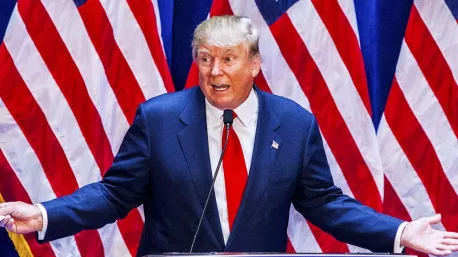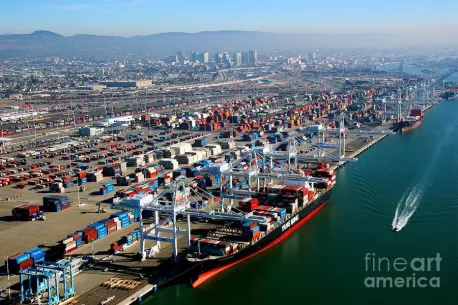Results: Inflation Time Bomb
Published on 07/03/2025
The source for this survey is the article-"The Inflation Time Bomb—Trump's Policies Will Hit Your Wallet" Opinion by Nicholas Creel. Nicholas Creel is an associate professor of business law at Georgia College & State University.

QUESTIONS
GO to COMMENTS
Comments
1.
1.
With inflation hovering modestly above 2 percent despite President Donald Trump's aggressive tariff increases and immigration enforcement, some might wonder whether warnings about his policies driving up prices were overblown. They weren't. The inflationary pressures are building beneath the surface, masked by timing, supply chain buffers, and massive corporate stockpiling ahead of policy changes. The time bomb is ticking—and consumers should begin bracing for the explosion. Have you stockpiled consumer goods in anticipation of looming price increases because of Trump's tariffs?

Yes
17%
341 votes
No
44%
886 votes
Undecided
9%
180 votes
Not Applicable
30%
593 votes
2.
2.
Though ICE raids began in January, the most aggressive workplace operations didn't intensify until late May, when Trump aide Stephen Miller pushed for 3,000 arrests per day—triple the early administration pace. Only recently have we seen dramatic workplace disruptions that at one point caused Trump to pull back on raids of farmers, hotels, and other key industries that rely on immigrants for labor. However, that pause proved to only be a brief reprieve, guaranteeing that the inflationary pressures from this aggressive immigration policy will continue to build. Do you think that the Trump administration's immigration policies will help the US economy?

Yes
19%
375 votes
No
41%
826 votes
Undecided
13%
259 votes
Not Applicable
27%
540 votes
3.
3.
What truly delayed the impact of Trump's most inflationary policy was an unprecedented wave of corporate front-loading in late 2024 and early 2025. Companies rushed to import goods before tariffs took effect, creating exactly the buffer that's now insulating consumers from immediate price shocks. These panic purchases were so intense it caused the U.S. economy to contract 0.3 percent in Q1 despite robust domestic demand. By May, container imports fell 9.7 percent as the stockpiling surge ended, and higher tariff rates took hold. By stocking up as they did, companies bought themselves time to ride through a few months of high tariffs without it affecting their bottom line. Did you realize that corporate front-loading bought consumers a few extra months before tariff induced inflation hits retail store shelves?

Yes
28%
564 votes
No
25%
499 votes
Undecided
15%
294 votes
Not Applicable
32%
643 votes
4.
4.
The Federal Reserve's stance reveals perhaps the clearest evidence that policymakers anticipate the inflationary surge ahead. Despite months of consistently lower inflation readings and unprecedented presidential pressure to cut rates, Fed officials have held interest rates steady—a decision that only makes sense if they're bracing for future price pressures. By keeping rates elevated despite political pressure and recent good inflation data, the Fed is acknowledging their belief that current price stability is temporary. They're positioning for the inflationary impact they know is coming rather than reacting to the deceptively calm present. Do you think that the Federal Reserve should remain independent and non-political as the US Congress intended them to be? Yes
46%
927 votes
No
7%
136 votes
Undecided
13%
269 votes
Not Applicable
33%
668 votes
5.
5.
The ingredients for an inflationary surge are now in place: depleted inventory buffers, supply chain disruptions in essential industries, elevated tariffs on a vast array of goods, and increasingly fragile inflation expectations. When companies exhaust their stockpiles and face the choice between absorbing higher costs or passing them to consumers, the answer isn't just predictable, it is a necessary function of the corporate mandate to maximize shareholder value. Do you agree that Corporate America will raise prices to protect their profits? Yes
49%
975 votes
No
7%
142 votes
Undecided
13%
267 votes
Not Applicable
31%
616 votes
6.
6.
Food prices are particularly vulnerable. With agricultural raids creating labor shortages during peak growing season and tariffs raising input costs, the sector faces a perfect storm. The lag between policy implementation and consumer impact is ending. Trump's own acknowledgment of economic "harm" from his policies—and his scramble to dial them back—suggests the administration has already seen internal projections of what's coming. The question isn't whether Trump's policies will drive inflation, but when Americans will feel it at the grocery store. Do you agree that Trump's economic time bomb is real, and the fuse is shortening?

Yes
44%
876 votes
No
13%
259 votes
Undecided
14%
276 votes
Not Applicable
29%
589 votes
COMMENTS


